October
26, 2003
Cotton Pickin'
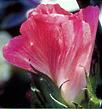
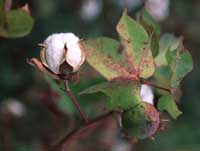
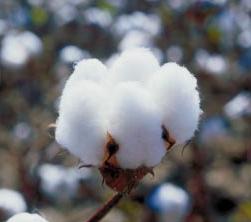
Well, the Steffek's cotton is finally out of the fields. Milton, Michael, Jim, and JW finished picking on Friday. All that is left now is to pull the stalks and plow for winter rest. This may not sound like such a strange event - except that the cotton on the coast is usually finished before the end of September! We are at the end of what has seemed to be a cursed year for crops. Last winter was so wet that the farmers thought they would never get to plant in time. After a belated start, dry weather at the most crucial time ruined the chances of many seeds to sprout. Soybeans were very poor as a result. Those crops that looked promising - cotton and milo - were laid down by Hurricane Claudette. It remained so wet that most of the milo sprouted in the fields, and the yield was under 30%. Insurance companies (gasp! shock!) found their way around paying out in full, which has left many farmers S.O.L.
The cotton looked to be holding out for a good harvest, but late rains kept the ground too wet and too muddy to get in the field. Each downpour soaked the bolls until the fiber appeared to be melting right off of the stalks. All of this, with the Texas Boll Weevil Eradication Program (ie: Boll Weevil Gestapo) breathing down their necks to finish the season by the deadline. It is required for all Texas cotton farmers to pay into the program on a per-acre basis in order to eradicate the destructive boll weevil. The state program consists of weekly crop-dusting with Malathion, and then sending employees around in trucks to count any weevils caught in the traps surrounding the fields. Mind you, any boll weevils need only move to the cow pasture, hay field, etc. to avoid the pesticide ( I probably absorb more of it than they do since the plane flies over the top of our house). Meanwhile, the civil servants often drive through the fields themselves because they check the traps without getting out of their vehicles.
This little program is, of course, funded by farmers and taxpayers. With the ridiculous assumption that any insect will be eradicated through a selective spraying program like this, I think we should add fleas, ticks, and mosquitoes to the list--maybe even boogie-men and chupacabra. But, there may be a little flicker of light at the end of the tunnel for some folks down here. West Texas may have an even worse year for low cotton yield, which could result in higher prices for cotton here. So, instead of 33 cents a pound, it may bring as much as 70 or 80 cents this season. For reference - cotton was paying about 30 cents a pound over a hundred years ago, and continues as the average today in spite of the skyrocketing costs of production.
Mascot has apparently decided that she is going to start a collection. We were in the pasture a couple of weeks ago, and I noticed that she had a curious expression--and that she was avoiding coming near me. About half an hour later, we had finished our feeding rounds, and made it back to the front yard. She still looked odd, and seemed to be pre-occupied with going around the corner. I realized that she had been carrying something in her mouth the whole time, and told her to spit it out. It was a tiny field mouse, still alive, which she had been packing around like a chipmunk, waiting for a quiet moment to inspect her prize. She has since been on a mission to find more mice, and JW has to keep taking them away from her.
The rooster convention looks as though it will soon come to an end. JW is making plans for the big day of processing, since we have SIX extra roosters. Junebug will be kept as our little red rooster, and Top Knot will get to stay because he is so funny. As for Heckyl, Jeckyl, Foghorn, Hanibal, and the Marauders--I am looking forward to chicken and dumplings...
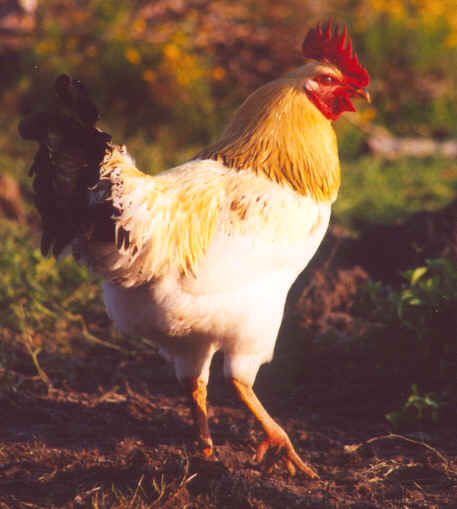
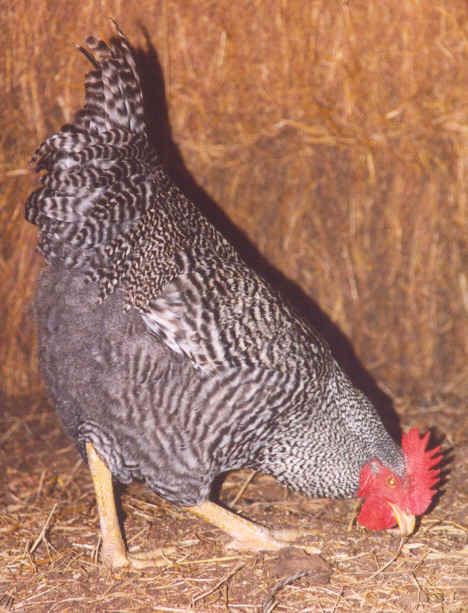
Junebug is very impressive with his three-inch red comb, and has recently become known as the Giggling Rooster. When the birds are fed, he clucks so fast that he sounds as though he is chuckling. They really get excited when I come around the corner with the blue kitchen scrap bucket. I have also noticed that he has a different and specific pitch for milo, oats, lettuce, and other treats. Michael says that I spend too much time with my chickens! Indeed!
I have finally determined what kind of birds Top Knot and Stella are! They are Bearded, Buff-Laced, Polish Bantams. Quite a long title for such little birds! Thay are closer in size to large pigeons than to chickens. Top Knot has become very brave lately, and even charges at JW when he goes into the coop to retrieve Mae's eggs. He must know better than to charge at me, because I have told him I will wring his little neck!
I have found a large chicken hatchery here in Texas, and have placed an order for one each of a variety of eight chicks. I look forward to their arrival this week. Seven of them will be guaranteed hens, and the English Game will be unknown. The breeds are Ameraucana, Black Australorp , Rhode Island Red, Golden Laced Wyandotte, Buff Orpington, Black Minorca, Danish Brown Leghorn, and Red Pyle Old English Game. In six to eight more months, we will have white, brown, blue, and green eggs. Martha Stewart, eat your heart out.
I am sending along another article about the Catfish Coop. This one is quite exciting, as I was interviewed for some of the production data. It really is neat to have read my name in the Farm and Ranch section of the paper! Even more fun than my Letter to the Editor.
Happy Halloween!

